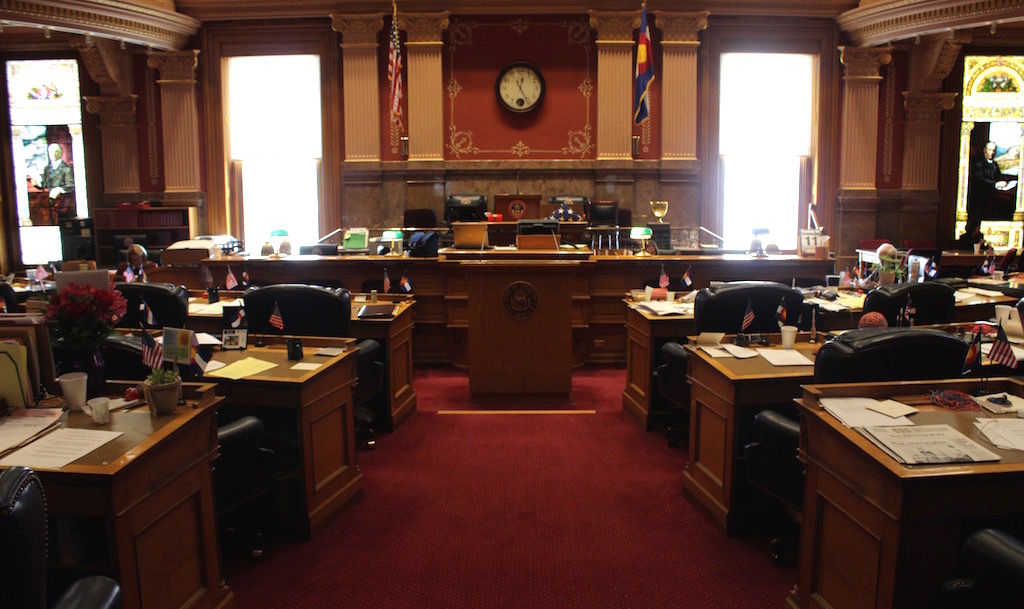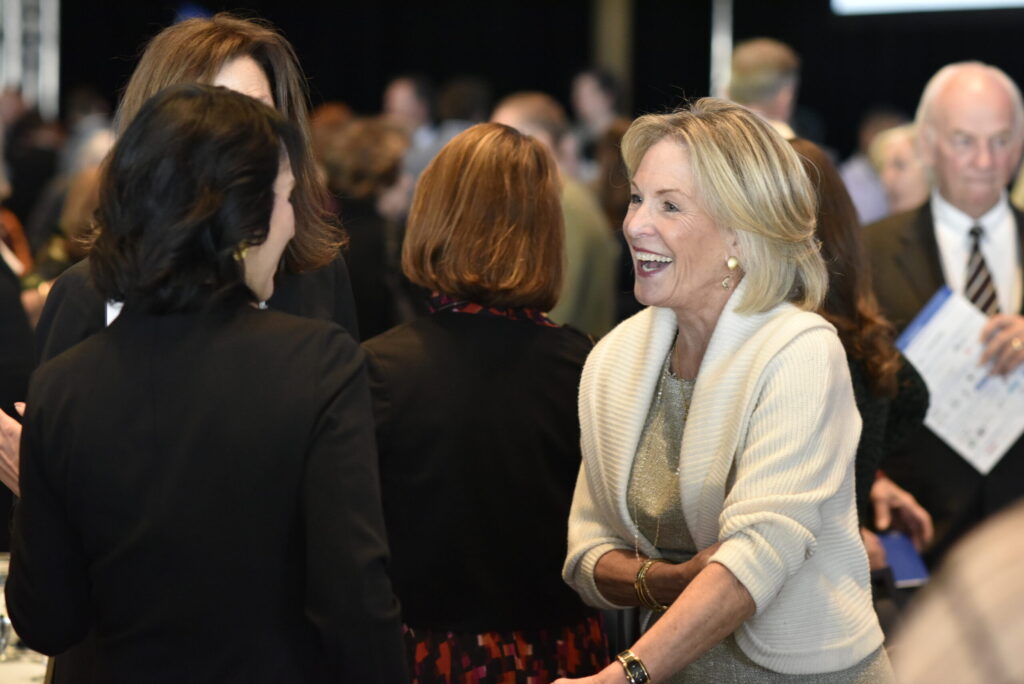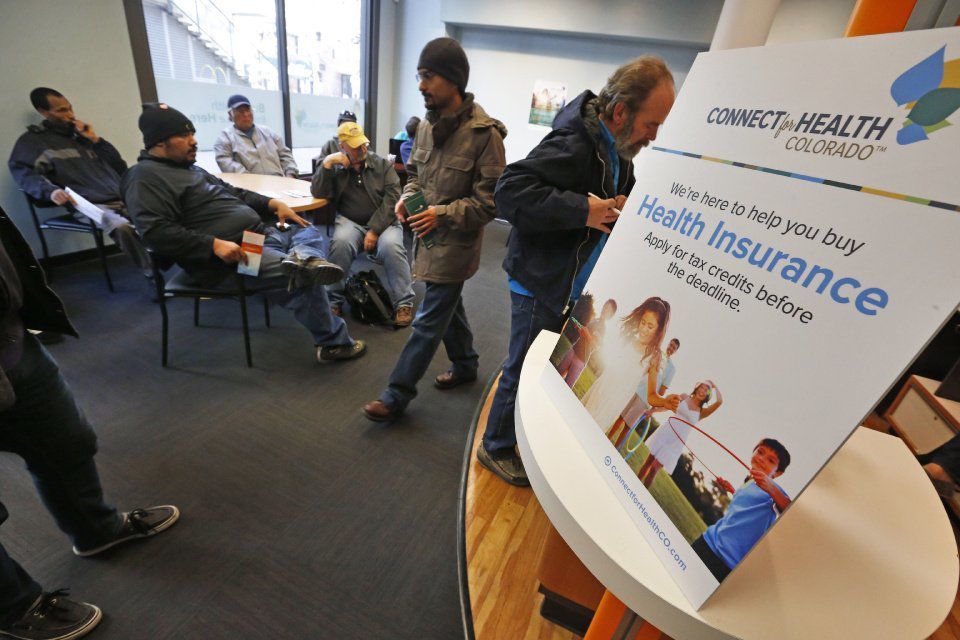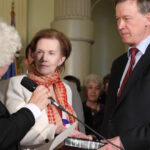In 2016, big splash bills went nowhere, quiet compromise ruled the day

It came to seem like a routine signal this legislative session: If lawmakers held a press conference touting the introduction of an important bill, one they placed at the top of their priority list, that bill would very likely never make it to the governor’s desk.
The result was a legislative session marked by a dearth of big-ticket new laws.
Perhaps the biggest bill of the session, Senate Bill 197, Sen. Pat Steadman’s compromise bill that will alter the way Coloradans buy beer and wine, shot through the Capitol in less than a week. It was the subject of countless hallway conversations but none of the usual press-seeking fanfare. The governor has yet to sign it, and he may not, but it headed off a threatened ballot initiative showdown between powerful business groups. It was a big bill and it was the one that proved the rule.
Proposals that were placed at the heart of countless press avails died again and again in what ended up being predictable stand offs in the split Legislature.
A bill to reclassify the state’s hospital provider fee was shot down in its first Senate committee hearing. Similar deaths awaited big bills on presidential primary elections, transportation funding solutions, gender equal pay, affordable housing.
They were all issues that were highlighted by Speaker of the House Dickey Lee Hullinghorst, D-Gunbarrel, and Senate President Bill Cadman, R-Colorado Springs. The problem was that Hullinghorst and Cadman stood on far opposite sides on almost every single one of the big ticket items.
Of course lawmakers did address serious issues, like law enforcement and juvenile justice reform, expanding mental health care and strengthening public safety. But what marked those successful efforts was mostly quiet compromise.
The ideological battle over the hospital provider fee began last year and grew to full strength this year.
Hullinghorst and Gov. John Hickenlooper opened up the 2016 session with speeches on the need to remove the fee from the general fund in order to, in effect, raise the TABOR spending cap. But Republican leadership never seemed to come close to getting on board.
Cadman called a press conference days before the session launched that featured an oversized printout of a Legislative Services legal opinion that called the proposal unconstitutional. The debate moved on but prospects of passing the bill never brightened.
On Thursday, in an end-of-session news conference, Senate President Pro Tem Ellen Roberts, R-Durango, painted the Republican resistance to the fee reclassification as part of a larger battle.
“This is a onetime infusion of some money — as if that’s going to solve our budget problems,” she said. “We’re trying to say, No it’s much bigger than that. It’s systemic and we have to deal with it.
“I think we’re trying to move in a proactive stance with the… (election year) political atmosphere that’s out of our control. I know there is one report that said, ‘Gee, this was a do-nothing Legislature.’ I totally disagree. I think we’re setting the table for continued Colorado cooperation into good policy.”
Republicans early on staked out a strong position in favor of comprehensive construction defect reform. With so many cities across the state passing their own reform, including Denver, Republicans thought they had the momentum and proposed a scaled-back version of a 2015 bill. Not so much.
Hullinghorst seemed intrinsically opposed to construction defect reform, a reflection of the stand taken by many of her caucus members, who tried pushing affordable housing bills as a way to address the lack of housing in the state.
“We learned one lesson from this year, and that’s a scaled back version obviously doesn’t work either without new leadership in the House, regardless of party,” said Sen. Kevin Grantham, R-Canon City.
House Minority Leader Brian DelGrosso, R-Loveland, seemed to agree that leadership in the House was a major stumbling block to construction defect reform, which he called a bipartisan issue.
“I will say there were multiple Democrats I spoke with that wanted to see a construction defect bill,” he said. “I believe there were a lot of Democrats who were willing to support that bill or some kind of bill if it made it to the floor… It all came down to current leadership and they didn’t want to see it.”
Hullinghorst disagreed. She said the construction defects bill and others died in the House because they were bad bills.
“They died of their own volition,” she said. “We had a real opportunity to do adequate funding for transportation without raising taxes — and that was to pass the hospital provider fee. That bill would have provided $50 million in this budget year.”
Hullinghorst added that the fact that many saw the hospital fee move as a credible way to raise more transportation funding is why so many groups outside the building supported the proposal.
Lawmakers also gridlocked over how to pay for desperately needed road maintenance and construction. Republicans pushed the issue repeatedly.
“Transportation was something I know is a big deal where I live in northern Colorado,” said DelGrosso. “That stretch of I-25, I commute back and forth. I live that drive every day. That’s my biggest disappointment, that this body has not invested in transportation.”
Hullinghorst early on signaled a Republican proposal in support of transportation bond funding was never going to pass the House. She said the proposal was a work around and that transportation demanded a dedicated source of revenue. She recommended Republicans looking for increased transportation funding back the hospital provider fee reclassification. They didn’t.
House Majority Leader Crisanta Duran, D-Denver, put the failure to increase funding for transportation squarely at the feet of small-government group Americans for Prosperity, which spearheaded opposition to the hospital fee proposal.
“This session was about having the courage to lead, and we proposed a solution to address so many of the issues when it comes to transportation and education funding,” she said. “We did as much as we could. What is most disappointing to me is the influence of Americans for Prosperity. I think we should start calling (AFP) what they are — Americans for Potholes.”
— ramsey@coloradostatesman.com
Colorado Politics Must-Reads:













